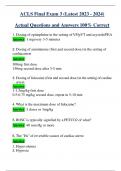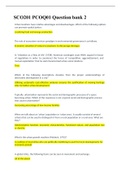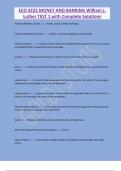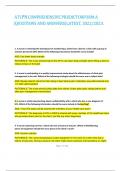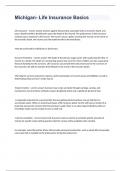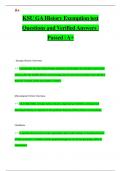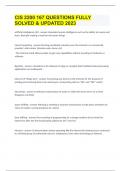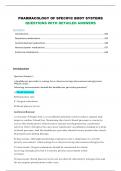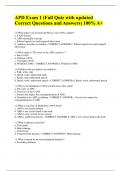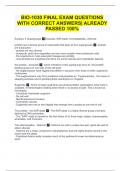Exam (elaborations)
ACLS Final Exam 3 (Latest 2024 / 2025 ) Actual Questions and Answers 100% Correct
- Course
- Institution
ACLS Final Exam 3 (Latest 2024 / 2025 ) Actual Questions and Answers 100% Correct 1. Dosing of epinephrine in the setting of VF/pVT and asystole/PEA Answer: 1 mgevery 3-5 minutes 2. Dosing of amiodarone (first and second dose) in the setting of cardiacarrest Answer: 300mg first dose 150mg se...
[Show more]
